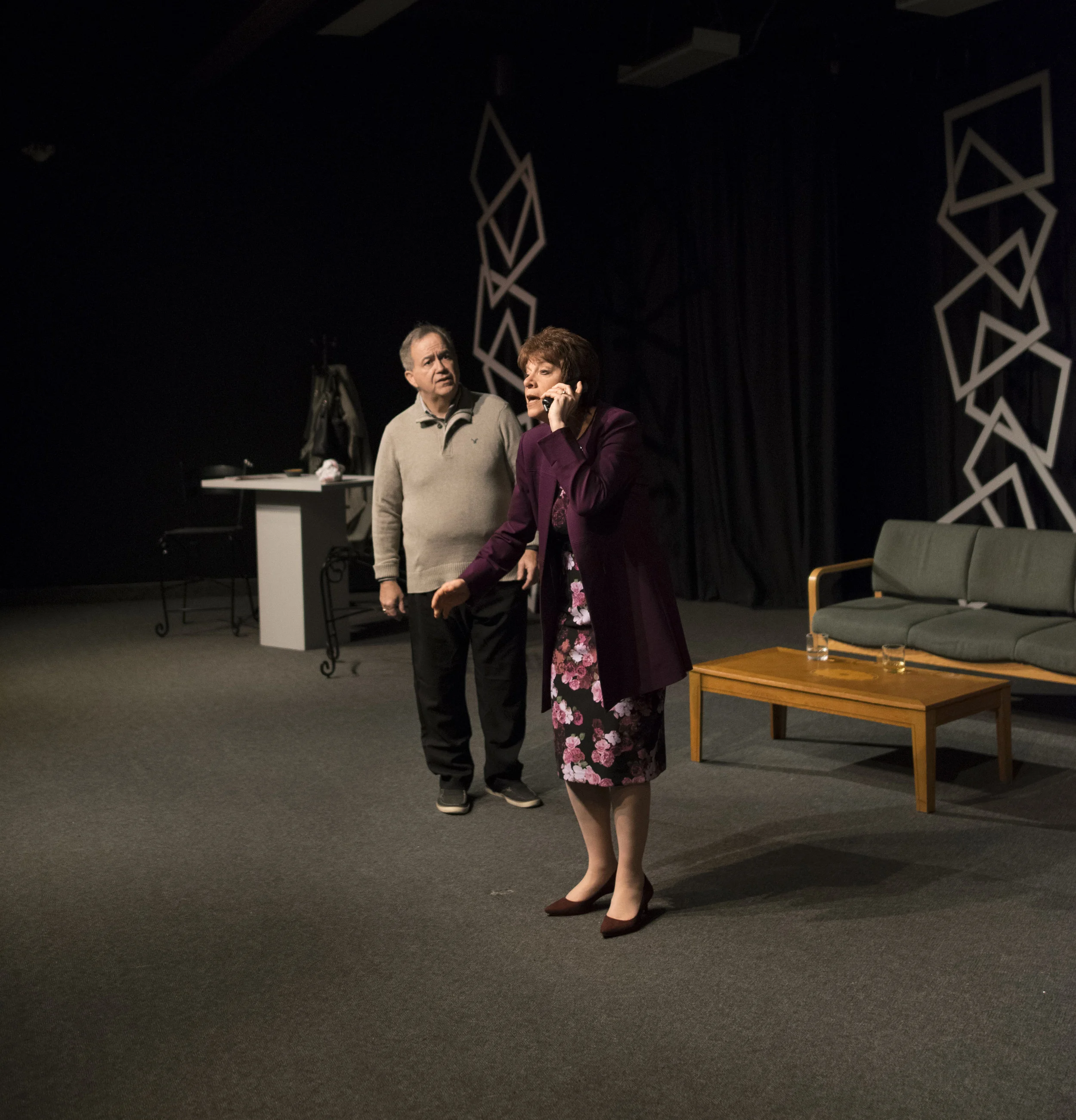By Paul Love
Guest Writer
The importance of memory, and how it shapes people’s perspectives has been a popular topic in cinema and theatre, as evidenced in films like Memento, Inception, and Rashomon, as well as plays such as Samuel Beckett’s "Waiting for Godot", and Tennessee Williams’ "The Glass Menagerie". Enter Sharr White, whose play "The Other Place" premiered at the Lucille Lortel Theatre in New York in 2011, and is currently being performed by Durham Shoestring Performers at the Arts Resource Centre in Oshawa.
Juliana Smithton is a brilliant neurologist in her early 50s who has changed from working in the lab to working the speech circuit in an attempt to drum up interest in a new medication. And her life is in turmoil — her husband is leaving her and she is struggling in her attempts to reconcile with her estranged daughter. The play opens with her recounting to the audience a touchstone moment in her life, which happened during one of her sales pitches at a neurological convention.
As the play progresses, Juliana takes the audience on a trip through her memories — from the convention speech to conversations with Juliana’s husband, Ian, and Juliana’s doctor, Dr. Teller, as well as phone conversations with Juliana’s daughter, Laurel, and back to the convention. Juliana speaks of difficulties with her health, fearing that she has a brain tumor. She also talks of her attempts to reconcile with Laurel, who ran away from home in her teens with an older man, and speaks fondly of her family’s former summer home in Cape Cod, the titular “other place”.
Ross Libbey is great as Ian, portraying a husband who tenderly struggles to support his wife, despite her outbursts and hurtful comments. He desperately tries to walk the tightrope of maintaining a happy relationship with his wife, while also trying to help her understand the cold reality of her situation. Mr. Libbey’s frustration and grave concern are felt so powerfully in a wonderfully nuanced performance.
Lyndsay Hamilton meets the challenge of tackling the three roles of Dr. Teller, Laurel, and a woman who Juliana meets unexpectedly — this last character being the strongest part of Ms. Hamilton’s performance, where she creates a great sense of confusion, fear, and I’ve-had-the-worst-day exasperation in her portrayal. Jesse Korneiew makes the most of his brief time on stage, adeptly playing a nurse and Juliana’s research assistant, Richard.


